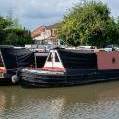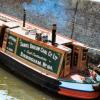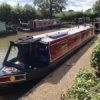As I said, I'm not trying to make more of it, as I don't have a preference one way or another. I just don't think it's as clear or simple as you claim.
The letter of the law, I believe, says: "the vessel to which the application relates will be used bona fide for navigation throughout the period for which the consent is valid without remaining continuously in any one place for more than 14 days or such longer period as is reasonable in the circumstances."
This in no way seems to define "bona fide navigation" as simply not remaing in one place for more than 14 days, and instead treats them as two separate things. ie one must bona fide navigate and, in the course of doing so, one cannot remain in the same place for more than a fortnight.
Therefore it's not just about not staying anywhere for more than two weeks, but is also about one's purpose with regards to what the boat is intended for, and whether that fits the definition of "bona fide navigation". In other words, does bona fide navigation solely mean that the intention is to genuinely navigate the canals, which thus requires a vessel to live on whilst doing so; or does it allow for one's intention to mean living almost statically on a specific part of the canal, with any navigation not being the intended purpose, but merely a necessary means to comply with the other part of the law? In the case of the latter, then it certainly does appear that the letter and spirit can be taken in different ways; as to most people "bona fide navigation" would imply that the primary goal was a genuine intention to navigate, and not simply enforced navigation because one has to every now and then, in order to effectively stay put.
That's why I feel that it's less about distance moved, or amount of time in any one place, and more to do with what defines bona fide navigation.













